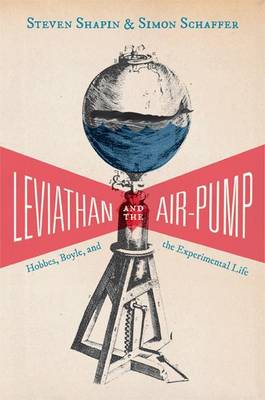Princeton Classics
1 primary work
Book 109
In the aftermath of the English Civil War, as people were groping for new forms of political order, Robert Boyle built an air-pump to do exper iments. Does the story of Roundheads and Restoration have something to do with the origins of experimental sci ence? Schaffer and Shapin believed it does.
Focusing on the debates between Boyle and his archcritic Thomas Hobbes over the air-pump, the authors proposed that "solutions to the problem of knowledge are solutions to the problem of social order." Both Boyle and Hobbes were looking for ways of establishing knowledge that did not decay into ad hominem attacks and political division. Boyle proposed the experiment as cure. He argued that facts should be manufactured by machines like the air-pump so that gentlemen could witness the experiments and produce knowledge that everyone agreed on. Hobbes, by contrast, looked for natural law and viewed experiments as the artificial, unreliable products of an exclusive guild.
The new approaches taken in Leviathan and the Air-Pump have been enormously influential on historical studies of science. Shapin and Schaffer found a moment of scientific revolution and showed how key scientific givens--facts, interpretations, experiment, truth--were fundamental to a new political order. Shapin and Schaffer were also innovative in their ethnographic approach. Attempting to understand the work habits, rituals, and social structures of a remote, unfamiliar group, they argued that politics were tied up in what scientists did, rather than what they said.
